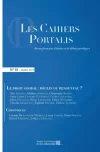Last December, Attorney General Jeff Sessions revoked the 2016 “dear colleague” letter issued by the Justice Department calling on jurisdictions around the country to cease certain punishments for the nonpayment of criminal fees and fines, including incarceration. The repeal of this letter suggests a withdrawal of the Justice Department’s commitment to defending the constitutional rights of the poorest Americans. Study after study has shown the degree to which poor people are more likely to be hindered by economic sanctions imposed by the judicial system, and the Supreme Court and other courts have already judged some of these practices to be unconstitutional. Scholars have argued repeatedly that the enforcement of penalties for the nonpayment of fines and fees imposed for criminal misconduct are unlawful under the Eight Amendment (protection against excessive fines), the Twenty-Fourth Amendment (right to vote), the Fifth Amendment (due process and interdiction of double jeopardy), and the Thirteenth Amendment (prohibition of slavery and involuntary servitude—the so-called peonage prohibition). However, there are still many uncertainties regarding the scope of protections afforded by these amendments when it comes to legal financial obligations applied to the poorest Americans.
Although the most important cases from the Supreme Court striking down enforcement of fines and fees for criminal misconduct involve the Fourteenth Amendment, very few scholars have dealt thoroughly with the scope of its protection. Most of the time, the literature briefly tackles the issue as it appears in three notable Supreme Court cases : Williams v. Illinois, Tate v. Short, and Bearden v. Georgia. In this context, the present note aims to question the practice of enforcement of fines and fees for criminal misconduct under the Fourteenth Amendment. There is an urgent need for courts to examine proportionality when due process and equal protection rights are at stake. Proportionality allows courts to address both categories when an objected practice appears to be deeply harmful and unfair, and yet no fundamental rights or suspect class are at stake.




